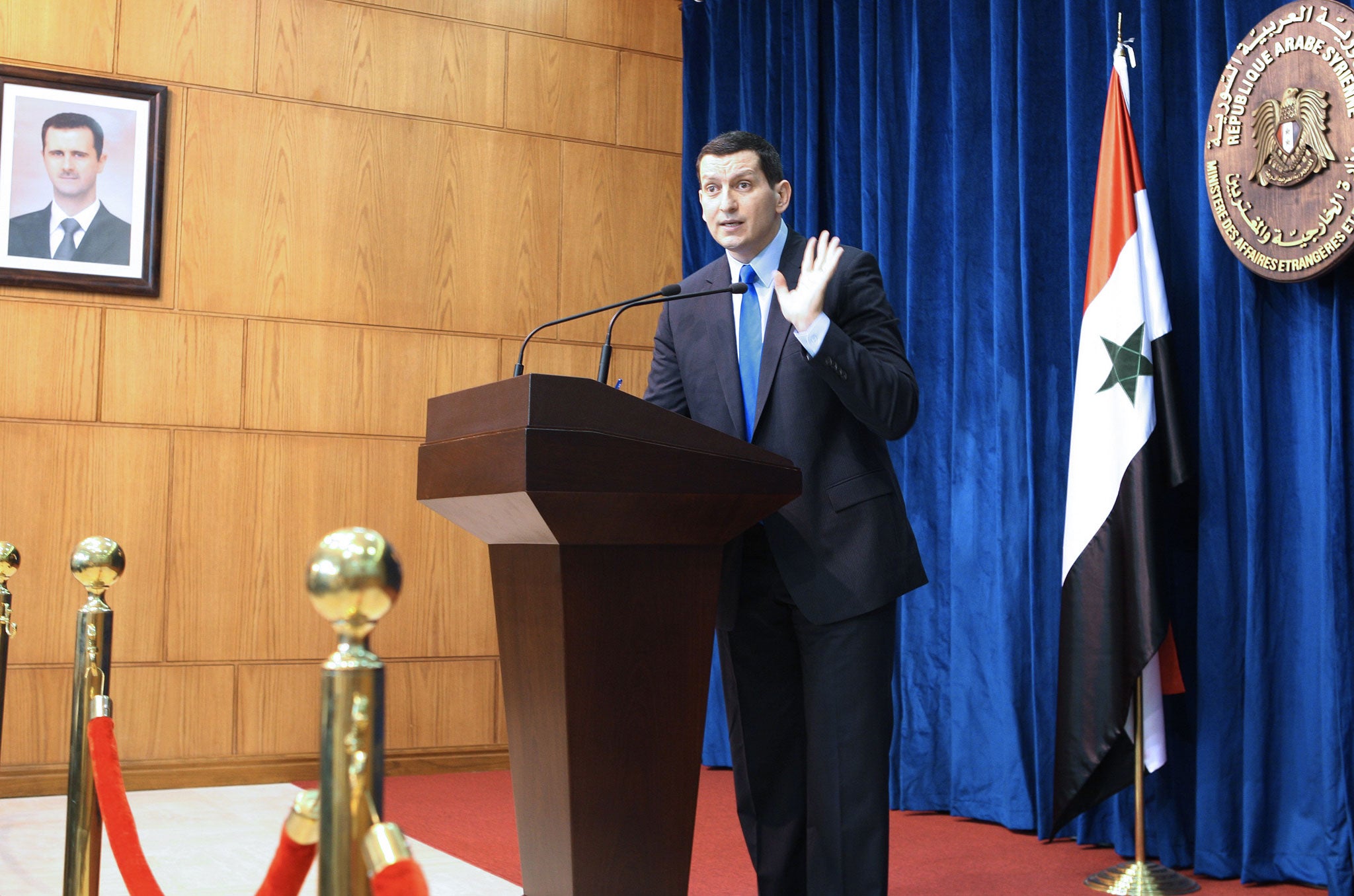Syria's elite used to believe the bureaucracy would continue even after the fall of Bashar al-Assad. After Makdissi’s defection, that has changed
The real reasons for the "dismissal" of a Syrian spokesman


Your support helps us to tell the story
From reproductive rights to climate change to Big Tech, The Independent is on the ground when the story is developing. Whether it's investigating the financials of Elon Musk's pro-Trump PAC or producing our latest documentary, 'The A Word', which shines a light on the American women fighting for reproductive rights, we know how important it is to parse out the facts from the messaging.
At such a critical moment in US history, we need reporters on the ground. Your donation allows us to keep sending journalists to speak to both sides of the story.
The Independent is trusted by Americans across the entire political spectrum. And unlike many other quality news outlets, we choose not to lock Americans out of our reporting and analysis with paywalls. We believe quality journalism should be available to everyone, paid for by those who can afford it.
Your support makes all the difference.“I am not with the regime – I am a civil servant,” Jihad Makdissi told me proudly. The Syrian foreign ministry spokesman believed in the institutions of governance, convinced that – come what may in Syria – the framework of bureaucracy would continue even after the fall of Bashar al-Assad and his regime. An orderly takeover of power was what he foresaw. But no longer. We were sitting in his Damascus office late last summer when he said those words, the sounds of battle scarcely half a mile away.
Makdissi’s defection – and this is the most dangerous message to come from it – means that even the most educated and far-seeing of Syria’s elite fear that chaos will break out, rather than political transition, when the uprising closes in on the presidential palace in Damascus.
He appeared, when I saw him, trapped between the loyalty of a civil servant and the despair of a man who saw his nation crumbling before his eyes. Makdissi is a Christian from Syria’s minority sects. His Shia name, he told me – given him by his father – showed how irrelevant were the lines of ethnicity in Syria, although he admitted that “Syria will never be the same”. On his office wall, he had hung a black and white portrait of Bashar’s father Hafez; he had found it discarded in a corridor and thought it an imaginative portrait. “We need his wisdom now,” he told me. At the time, he dismissed the anti-Syrian policies of the Gulf states, cynically calling them “gas stations”.
The Syrian government’s claim that Makdissi was fired for no longer representing the regime was inevitable. In the summer, the United States said – as it did again this week – that it feared that Assad would “use chemical weapons against his own people”, a claim that the West made against Saddam Hussein prior to the 2003 invasion of Iraq – and Saddam had indeed used chemicals against pro-Iranian Kurds. Makdissi was given a statement in July which he accurately translated, to the effect that Syria would never use its chemical armoury against Syrians – only against foreign invaders.
This was enough of a quotation for the Americans to use against the regime – so Syria admits it has such weapons in its armoury. Makdissi diplomatically added to the statement: if Syria had such weapons, they would not be used against Syrian citizens. Makdissi’s boss, Walid Moallem, repeated this same statement to me in August. But it was too late. Makdissi’s original translation – of a statement for which he was not responsible – became the new US mantra; and Syria’s excuse for supposedly dismissing him from his post.
But Makdissi had seen the end coming. He had moved his family to Beirut, and spent each weekend in the safety of the Lebanese capital, usually working only a three-day week in Damascus. His office in the Syrian foreign ministry was so close to the suburban battle lines that he worked amid the din of shell and mortar fire. He was obviously trusted by Moallem – he would occasionally re-translate Moallem's passable English to clarify the Foreign Minister’s words – but he had, after all, been a senior diplomat at the Syrian embassy in London.
No, the regime is not about to collapse. Fools are they who read such an imminent fall in a mere defection. But Makdissi is an intelligent and decent man, and he is Syria’s loss.
Join our commenting forum
Join thought-provoking conversations, follow other Independent readers and see their replies
Comments